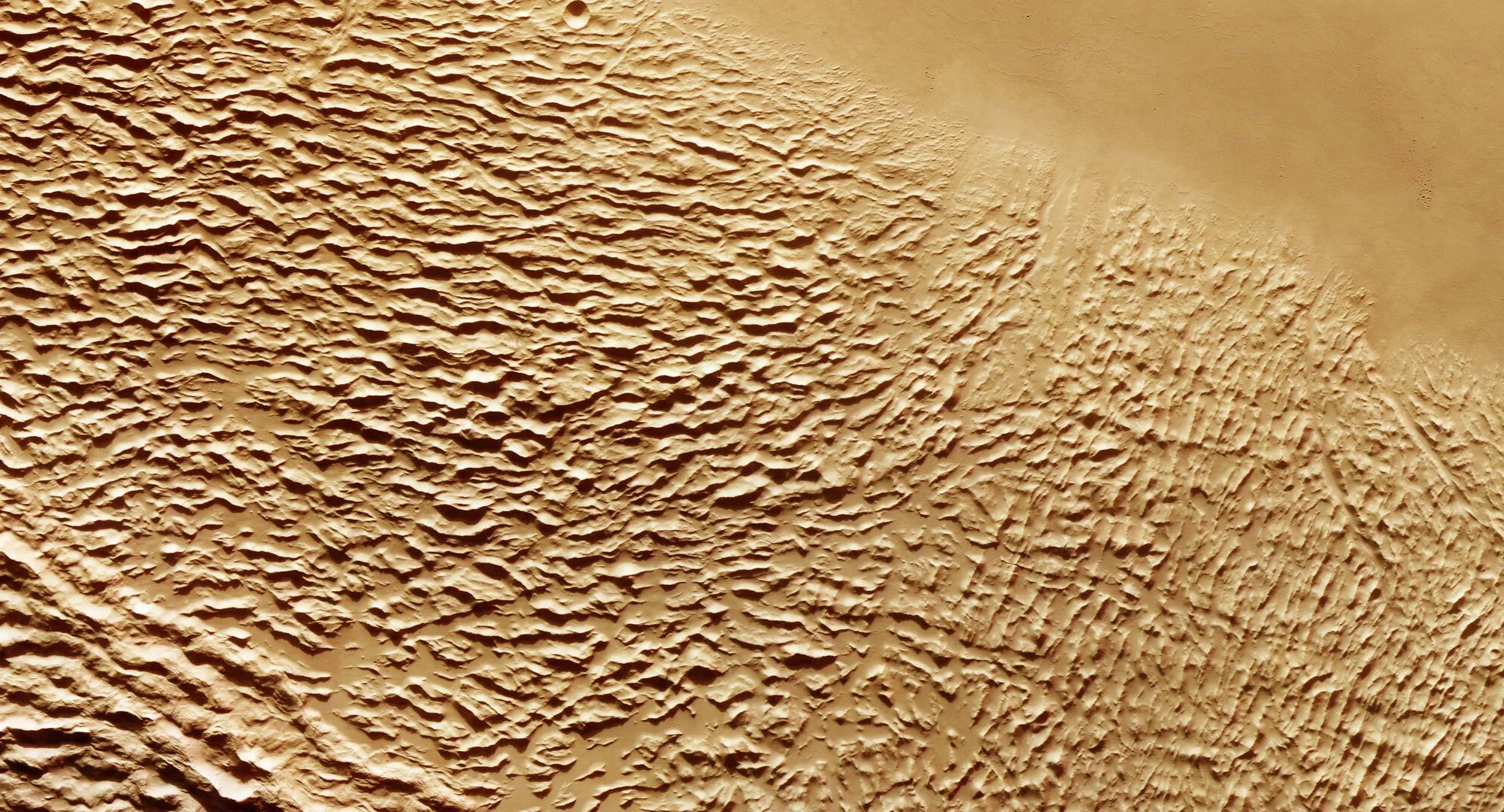A Chinese rover found evidence of an ancient Martian ocean
- November 8, 2024
- 0
A Chinese rover has found new evidence supporting the theory that Mars was once home to a vast ocean, including tracing some ancient coastlines where water once gushed,
A Chinese rover has found new evidence supporting the theory that Mars was once home to a vast ocean, including tracing some ancient coastlines where water once gushed,

A Chinese rover has found new evidence supporting the theory that Mars was once home to a vast ocean, including tracing some ancient coastlines where water once gushed, a study said Thursday. The theory that oceans covered nearly a third of the Red Planet billions of years ago has been debated among scientists for decades, and an outside researcher has expressed some skepticism about the latest findings.
Subscribe to our Telegram channel
In 2021, the Chinese rover Zhurong landed in a plain in the Utopia region of Mars’ northern hemisphere, where traces of ancient water had previously been observed. It has been investigating the red surface ever since, and a new study in the journal revealed some new findings from the mission. Nature. The study’s lead author, Bo Wu of the Hong Kong Polytechnic University, told AFP that several features indicating a past ocean were seen around Zhurong’s landing site, including “pitted cones, polygonal troughs and incised streams”.
Previous studies have shown that crater-like pitted cones may originate from mud volcanoes and form in areas where there is mostly water or ice. According to the research, information from the rover, as well as satellite data and analyzes on Earth, show that there was once a coastline near the area.

The research team estimated that the ocean was formed as a result of a flood about 3.7 billion years ago. The ocean then froze and eroded the coastline before disappearing 3.4 billion years ago, according to their scenario.
Bo emphasized that the team “does not claim that our findings conclusively prove that there is an ocean on Mars.” That level of precision would likely require a mission to return some Martian rocks to Earth for closer examination.
Benjamin Cárdenas, a scientist who has analyzed other evidence of a Martian ocean, told AFP he was “skeptical” about the new study. He believed that researchers had not sufficiently taken into account how strong Martian winds had blown away sedimentary deposits and eroded rocks over the past few billion years.
“We tend to think that Mars is not as active as the Moon, but it is!” said Cardenas, of Pennsylvania State University in the United States.

pointed to the past
Research studies suggest that “even slow rates of Martian erosion” would destroy coastline features over such a long period of time. Bo acknowledged that the wind may have blown some rocks away, but said the impact of meteors hitting Mars could also “occasionally blow underground rocks and sediments to the surface.”
While the general theory remains controversial, Cárdenas said he is inclined “to believe there is an ocean on Mars.” Finding the truth could help solve an even bigger mystery: whether the only Earth in the solar system could host life.
“Most scientists believe that life on Earth began either under the ocean, where hot gases and minerals from the subsurface fell to the seafloor, or in small tide pools very near the water-air interface,” Cárdenas said. he said. “So the presence of the ocean makes the planet more hospitable.”
Source: Port Altele
As an experienced journalist and author, Mary has been reporting on the latest news and trends for over 5 years. With a passion for uncovering the stories behind the headlines, Mary has earned a reputation as a trusted voice in the world of journalism. Her writing style is insightful, engaging and thought-provoking, as she takes a deep dive into the most pressing issues of our time.